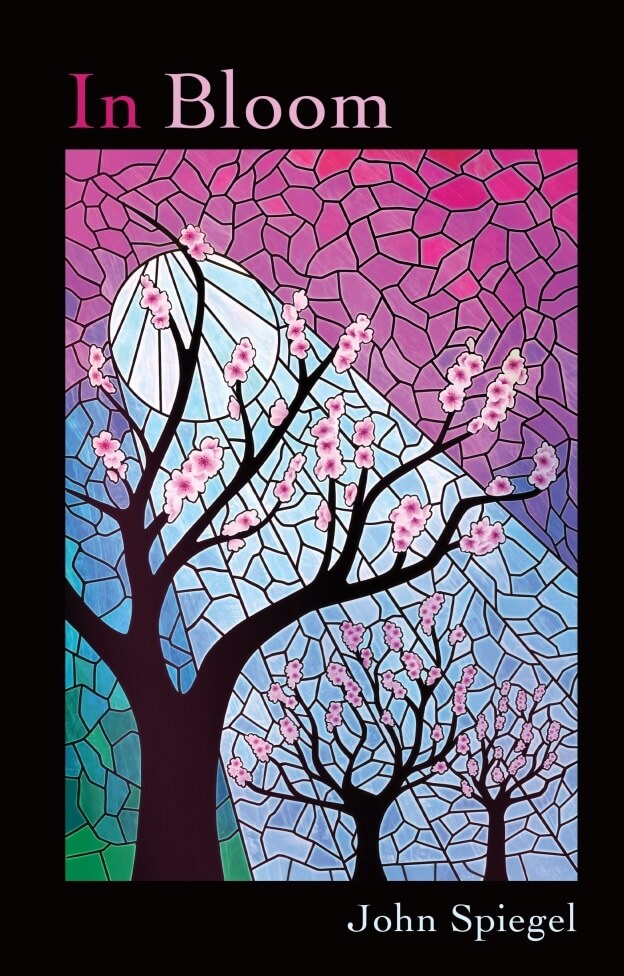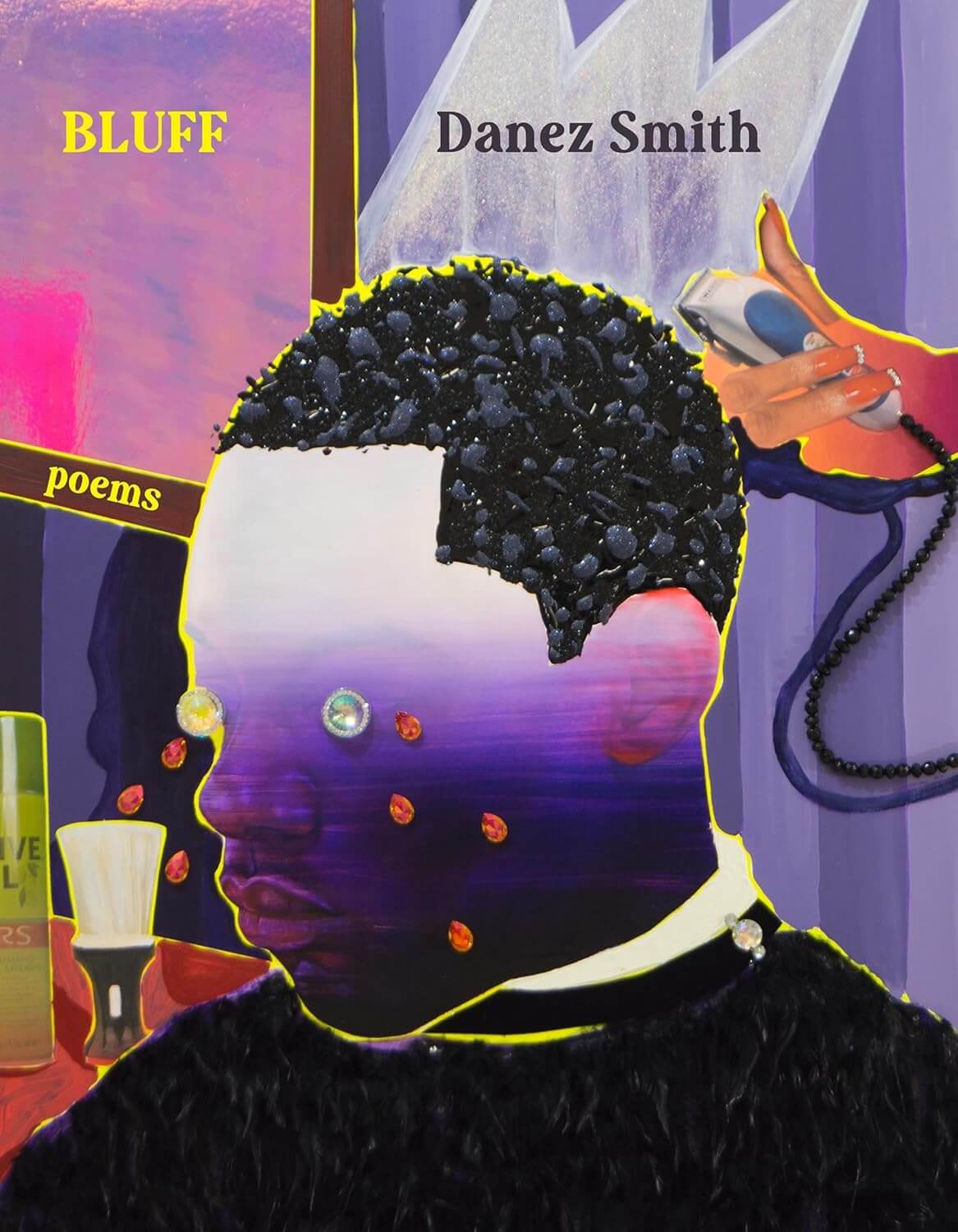
Review
Child Is Father of the Man: In Bloom
By John Spiegel
Finishing Line Press
ISBN: 979-8-88838-461-9
Review by Brendan Rowland
In Massachusetts, where I grew up, new drivers must pass a written permit exam, undergo thirty hours of classroom teaching, eighteen hours of in-car instruction, forty more hours of supervised driving practice, and pass an in-car driving test to receive an ordinary driver’s license. So, when you’ve finally fledged and are set loose on the frantic Massachusetts roads, some knowledge of how you’re supposed to act and react behind the wheel (ten and two!) counters your nerves.
Becoming a parent has, frankly, none of this preparation and, correspondingly, few right answers. John Spiegel’s debut poetry collection, In Bloom, meditates on this cluster of parental fears: “I’m worried I won’t know enough to be a father.” Published this February via independent poetry publisher Finishing Line Press, Spiegel’s manuscript surveys the few months before and the year after the birth of his daughter, nicknamed “T.”
The collection contains ten brief sections of short, image-dense poems; all except the first section begins with “Notes to Self.” In Bloom pivots around “November,” an extended poem with thirty subsections, one for each day of the bleakest month, compiling a moving homage to commotion, family, and time’s slow dripping away. Elsewhere, Spiegel deftly employs traditional forms including sonnet (“Notes to Self” #2, “Ode to The Black Forest,” “Do You Feel Your Age?,” “Tell A Daughter”), haibun, a prose poem rounded off with a haiku (“Time and Fire,” “First Melt,” “March 25”), and the prose poem (“On the Airplane Home,” “Underwear Drawer,” “Notes to Self” #9). His rhythm and tone are masterful and remorselessly precise.
Earlier, I used the intransitive verb meditate, the act of “exercis[ing] the mind in thought or reflection,” deliberately. Spiegel’s (seemingly effortless) form becomes invisible, isolating and elevating the contemplated object. Blake prized perception and exploration of “minute particulars,” and Spiegel agrees: “cliché / doesn’t distill an emotion, it waters it down. / Overwaters it.” His collection exercises a razor gaze, analyzing and dissecting through images. For instance, he sandwiches his collection between two explorations of his childhood via snapshots of skating or snowboarding in the cornfield-turned-golf course across the street from his parents’ home (in “Ode and Elegy to a Hometown” and “Childhood’s Home”). These sparse treatments express his childhood sense of being an imposter, and his conclusion —“When I look across the street from my parents’ / now, I see young stalks of a different kind growing toward the sun”— communicates this uneasiness persists despite his new stage of life.
Paternity isn’t a legal fiction, it’s a web of fears: “You will hate yourself for being unable to prevent / the unpreventable. Your hatred / is a natural pain you can / do nothing to prevent.” Throughout, Spiegel finds himself older yet little wiser than his child or his students: “a number says less / about us than we once hoped.” Above all, the collection is an extended reflection on the inscrutability of aging, of birth-growth-decay-death: “you remind me: / you’re so young. The world is so old.” “I am / the carpenter and the ant,” he writes about his rotting fence, finding himself perplexed about the cycle of life. In response to “Childhood’s Questions,” he retorts, “We’re here because we’re here. / I don’t know who I am anymore.” Of course, T. incites these feelings of incompetency: “under all this pressure, / this doubt pushing down on me, / I can’t help but push back.”
As I noted, however, Spiegel rarely falls back on these self-reflexive moments. Instead, he unites the disparate objects and moments he sketches, “Like / pointillism up close,” through recurrent symbols, primarily falling, space, and the moon.
The collection collects correspondences, lingering similarities amidst disparities. Between hospital and airplane. Between rain and snow and hail. Between daughter and grandmother and self. Between space and fences. Between sound and touch and appearance. Between distance and proximity. Between time and numbers. Between knowledge and uncertainty. Spiegel fears failing to see clearly, fears being out of control in an inscrutable chaos.
Symbols expertly represent these fears. “Fall” prominently appears in all the word’s valences, noun and verb. Fall takes over from summer. The poet falls morally. Night falls. Rain descends. Snow flurries. Trees topple. Leaves detach and plummet. The poet and T. fall asleep. T. falls in her dream. Spiegel meditates on T. growing up and moving away (“Fall soft not far”). Spiegel slips into a lion’s den. The earth decays (“Something is falling, failing”). Fall, multifaceted, represents the terror of instability.
As a child, outer space fascinated me. I devoured encyclopedia entries, poured over grainy photographs, pinned tinted plastic spheres to my popcorn ceiling among phosphorescent stairs, and arranged sports equipment across the yard to envision the solar system as Spiegel depicts in “Ex Nihilo.” Space captivates because it is vast, strange, and “named for what it has.” Spiegel transmutes these interstellar qualities to earthly spaces, destabilizing mundane reality to reflect how it looks through his eyes. The collection’s “unstable topography” is filled with plants, animals, and occasionally Dylanesque human characters who flicker “along the watchtower city walls.” Fences or picture frames intrude to define and contain space: “My home town is a fence around space.” These fences, intended to produce artificial self-confidence like the Gibbons’ at the Columbus Zoo, decay or are out of place. Fences cannot wrangle empty space because “[e]mpty might not be the right word.”
The moon twists in and out of Spiegel’s fears as the omnipresent symbol of a complex and unknowable reality, as the representative of God presiding “wherever it is He’s hanging out.” It “follows me / but it always seems to spin further and further away,” as the poet’s anxieties deepen. Unlike Plath’s “bald and wild” moon, Spiegel’s moon is stable and wise: “When a baby cries, and you don’t know why, ask the moon, she usually knows.” She is soothing, “ris[ing] at night when the air calms” like the poet, but despite Spiegel’s whispers and secret-sharing, “sound / can’t travel in a vacuum” and anyway “she might not understand / me.” Spiegel’s one-sided relationship with the moon is metonymic for his fears about poetry’s abilities: “how am I to fit / a moon in a bag or words.” Spiegel falls through space under the oblivious moon, simultaneously hypnotizing and agitating his reader.
As I first read In Bloom, the singer of a punk band recorded vocals for her new song in a tenement flat across the alley from my open Glasgow window. She repeated small phrases, snippets of verses and vocal runs, over and over and over, detached pieces of her sonic puzzle, gradually growing louder, more assured, until I could envision her song coherently despite only hearing her hesitations and vocal cracks melt into clear pitch.
Spiegel’s manuscript harmonizes with the singer. Like her, his crystalline words undoubtedly have a rich musical backing in life’s bustle. Like her listeners, his readers only grapple with his perspective on his new daughter. Like the singer’s chronicle of betrayal and heartbreak, Spiegel strips his fears to their isolated essence, and his conclusions, his contentment in powerlessness, gradually become more confident, or at least more content: “Tell a daughter she’s a song.” Although “the scary thing” is “that I am this, / no matter how much I try not to be,” Spiegel’s grappling in In Bloom leads him–not optimistic, but resolute–to affirm the dangerous game of fatherhood because “the stakes are you.” His collection ought to be required reading for new parents.
About the Author
 Brendan Rowland hails from Westford, Massachusetts, several lots down from Edgar Allan Poe’s brief residence. He is currently pursuing a master’s in English Literature at the University of Glasgow. His poetry has appeared in journals including Delmarva Review, Fast Flesh Literary Journal, and Press Pause Press. He listens to music on an iPod Classic and drives a silver 2009 Honda Odyssey.
Brendan Rowland hails from Westford, Massachusetts, several lots down from Edgar Allan Poe’s brief residence. He is currently pursuing a master’s in English Literature at the University of Glasgow. His poetry has appeared in journals including Delmarva Review, Fast Flesh Literary Journal, and Press Pause Press. He listens to music on an iPod Classic and drives a silver 2009 Honda Odyssey.



